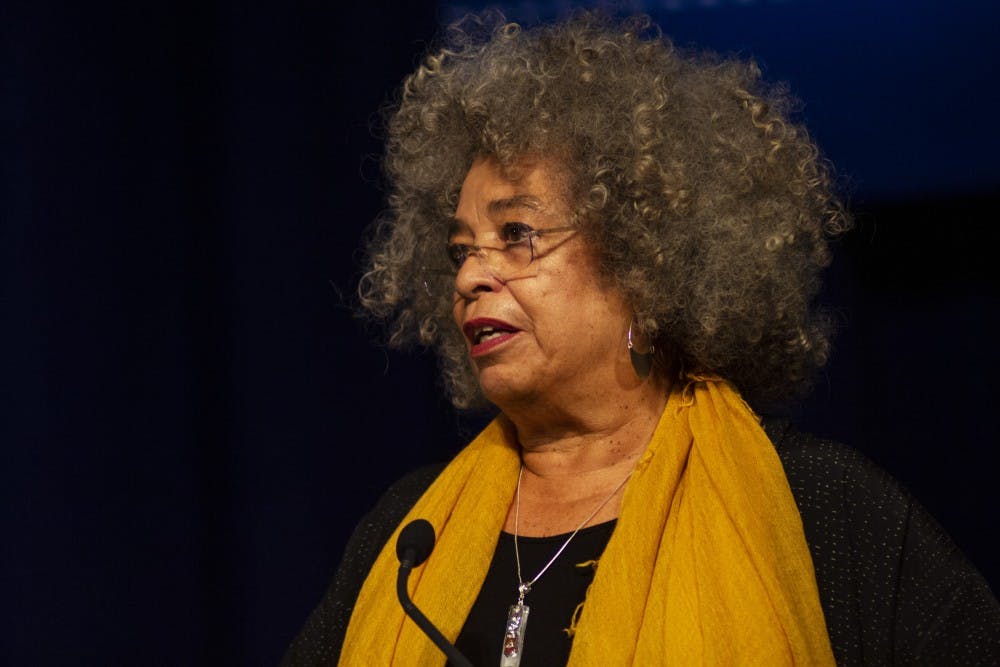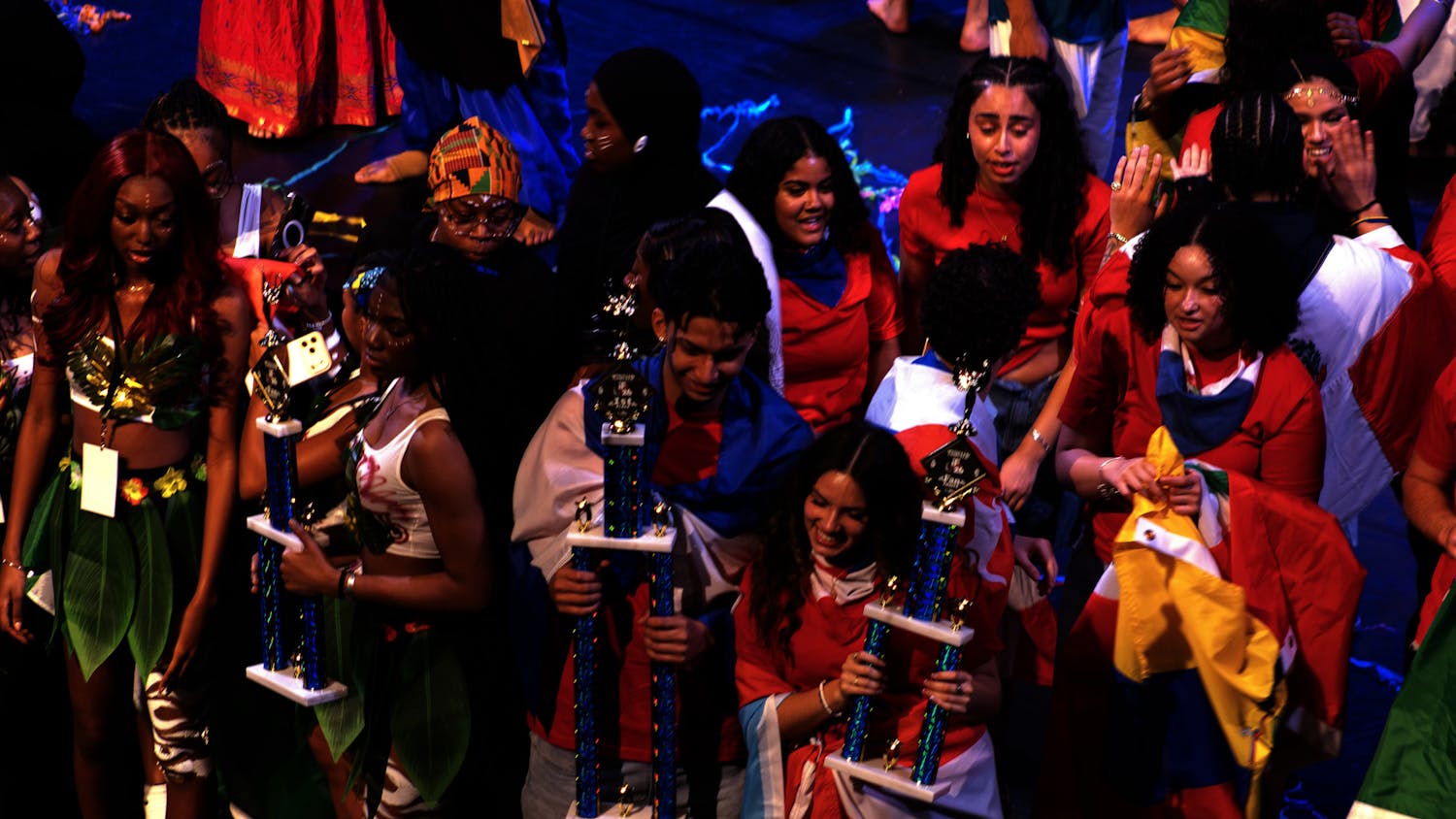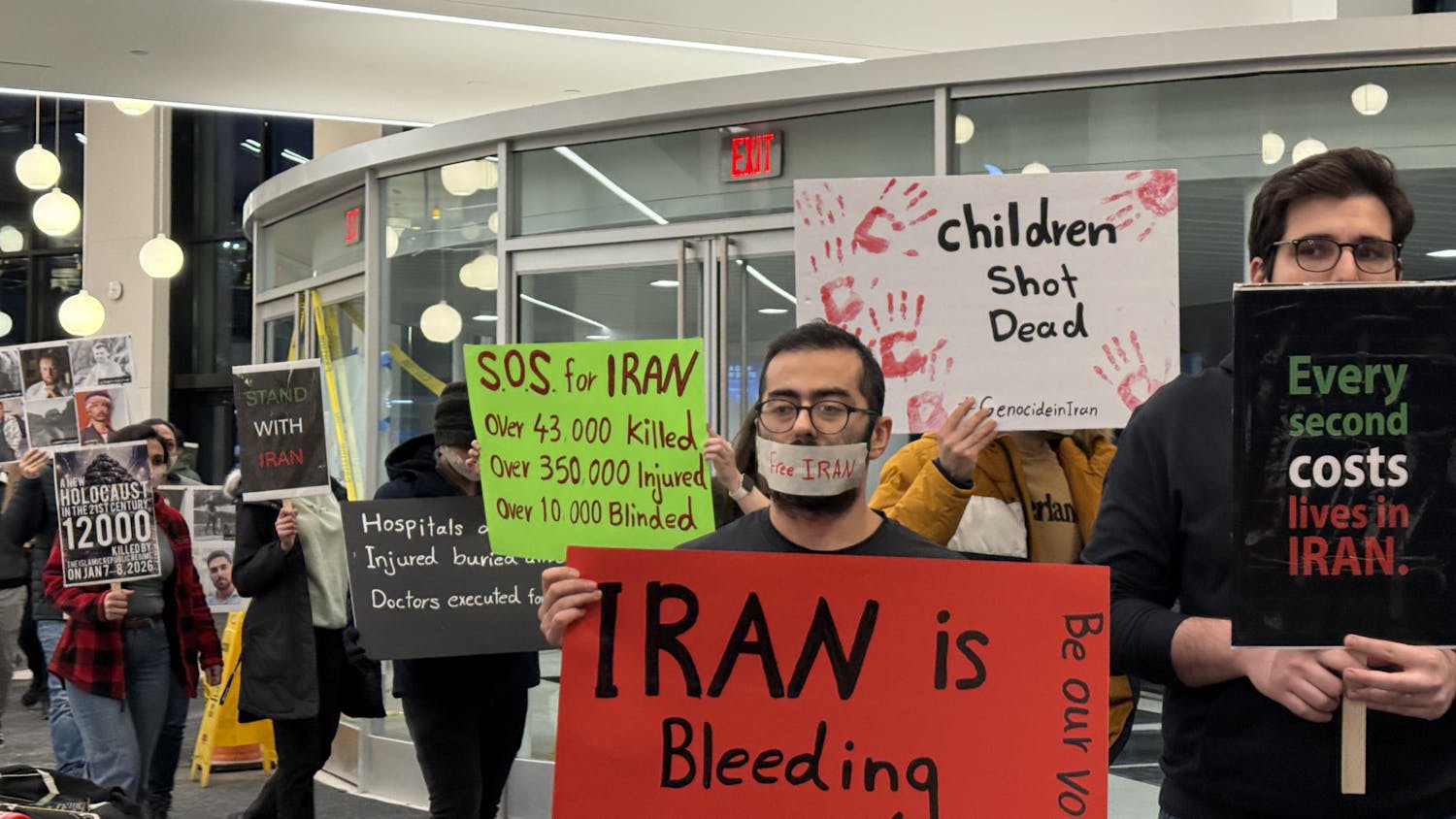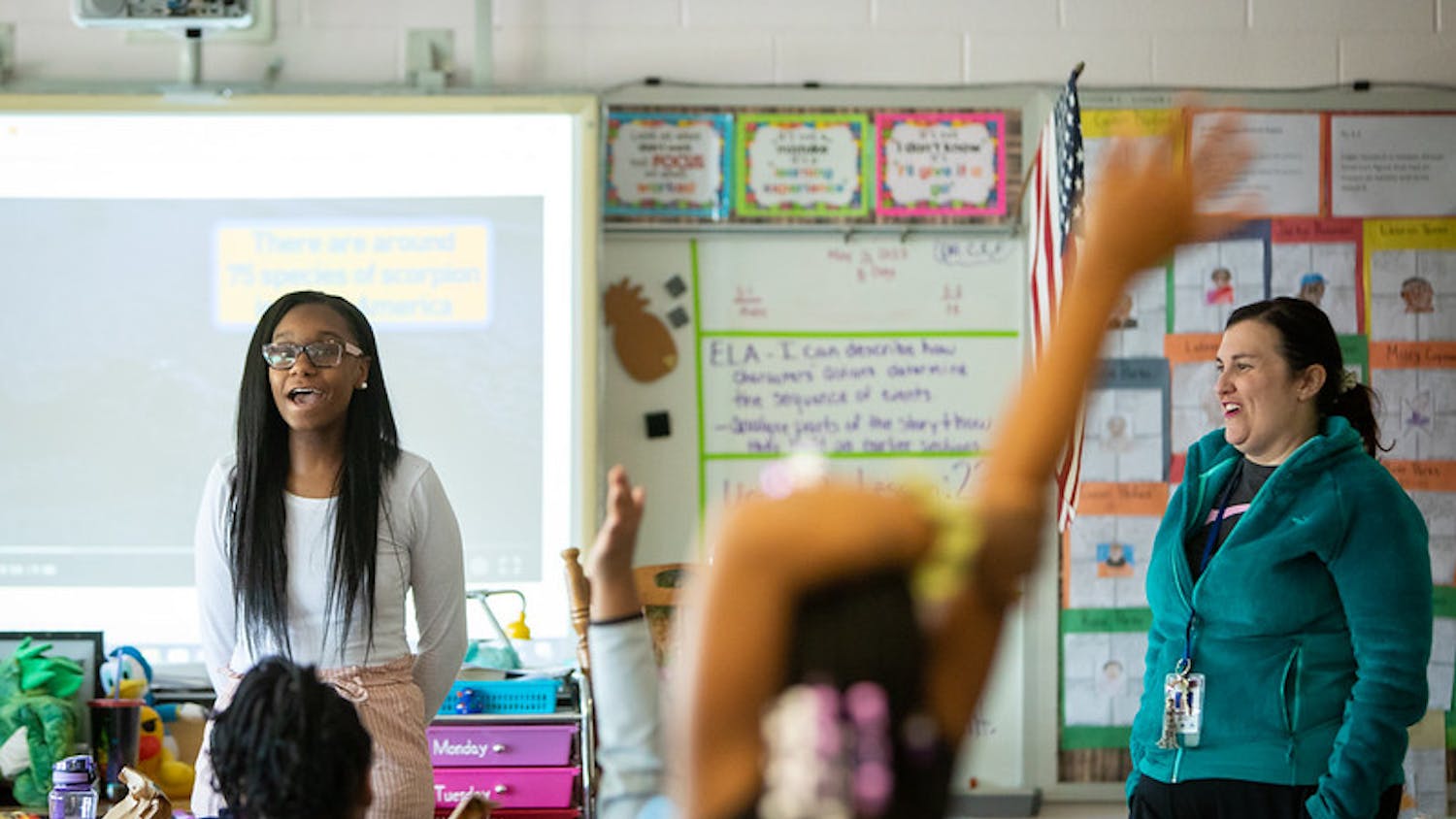Nearly 50 years after speaking at UB for the first time, political activist Angela Davis visited UB again on Wednesday to relay her message of justice.
Davis was UB’s 43rd Annual Martin Luther King Jr. commemoration keynote speaker and spoke to roughly 1,500 students, faculty and community members who braved the snowy weather to attend. Davis, as part of the 32nd Annual Distinguished Speakers Series, touched topics ranging from black history, Native American rights, gender equality and the Palestinian people.
Davis began her speech with an acknowledgement of the Native American roots of UB’s North Campus, which lies on “colonized” Haudenosaunee land.
“I think every event should begin by acknowledging the fact that we are on colonized land,” Davis said. “We have not adequately addressed the consequences of the original genocidal violence inflicted on the first people of this continent.”
Jill Clause, Tuscarora Nation Territory of the Turtle Clan, said, as a member of the Haudenosaunee, she found Davis’ mention of indigenous people “respectful.”
“For her to shed a light on the Doctrine of Discovery is so empowering,” Clause said. “It's nice to have such a legend come to the community and to talk to everybody and to talk to them about the world.”
Davis recounted her childhood and described games she would play with her friends where they would “dare” each other to do things that were illegal during the Jim Crow era.
“We used to run up to white people’s houses, ring their doorbells and run,” Davis said. “We learned very early on that resistance can be fun.”
She said the games were a way for black children to resist the segregation laws of the time, which eventually evolved into institutional resistance efforts.
Davis discussed how black women who worked domestically –– “in white people’s homes” –– were integral to movements, such as the Montgomery bus boycott.
“Many of those organizers were women,” Davis said. “In fact that’s generally the case. Women are the ones who do the work that really matters, that makes it possible for movements to emerge.”
Davis criticized the current American government, including the Michael Cohen testimony that took place Wednesday morning. She also said she was happy with the recent midterm election, which brought “more women into the Senate than ever,” and praised the efforts of Congresswomen Rashida Tlaib, Alexandria Ocasio-Cortez and Ilhan Omar.
“Despite some seriously depressing aspects of our political life at this moment, there are exciting aspects,” Davis said. “This is an exciting moment.”
Davis said those who believed Omar was anti-Semitic for her views on the American Israel Public Affairs Committee were being “quick to judge” and that AIPAC was “not a Jewish organization.”
Davis said the criticism was a symptom of the “lack of” national debate about more serious forms of anti-Semitism that were happening in America, before citing that there was a 57 percent jump in anti-Semitism in America in 2017.
Davis contrasted institutional issues of racial discrimination with “everyday racism” and said she thinks racism is worse now than it was right before the civil rights movement.
“We have the tools to acknowledge the structural character of racism,” Davis said. “It’s worse now because it’s so deeply embedded and entrenched in all of our institutions.”
She discussed the community involved in black history and racial issues. She said it is “the contributions of masses of people” that allow progression to occur.
During the Q&A session that followed her speech, Davis learned about UB’s African American Studies program, which was merged into the Transnational Studies department. She offered advice and said students should be vocal about their concerns.
“We need these programs that manifest a sense of what it means to do interdisciplinary work now more than ever before,” Davis said. “Start a petition and get as many people on campus to sign the petition about the need for more resources for the [program].”
Davis also addressed the recent controversy surrounding the rescission of her Fred Shuttlesworth Human Rights Award from the Birmingham Civil Rights Institute.
The award was rescinded because of her “consistent support for human rights for the Palestinian people,” Davis said. She said because of the controversy and subsequent uproar following this decision, the “rescission was rescinded.”
Q&A moderator Raechele L. Pope, associate professor for education, leadership and policy, asked Davis about her response to those who feel her stance on Palestine is anti-Semitic.
She said Israel was not “immune” to criticism and had a right to criticize the government of Israel, just as she had to criticize any other government.
She recounted all of the Jewish influences in her life, including her mentor Herbert Marcuse. She said her stance wasn’t anti-Semitic, and people didn’t have a right to pick and choose who deserved justice.
Yoke Mun, a senior sociology and communication major from Singapore, said that although she wasn’t from “this part of the world,” the topics Davis spoke about were “applicable in every country.”
Mariama Fall, a junior legal studies and sociology major, said she enjoyed Davis’ sincerity.
“Not only did she speak so openly and uncensored about the social issues that plague our society today. She did not hold back, nor did she sugarcoat or pander,” Fall said. “She was eloquently blunt about accountability and how we should recognize those that came before us.”
Davis’ speech reflected her hopes for intercultural and international respect.
“Anyone who lives on this planet cannot be considered an outsider.”
Tanveen Vohra and Jacklyn Walters are Co-senior News Editors and can be reached at news@ubspectrum.comand on Twitter @TanveenUBSpec and @JacklynUBSpec.
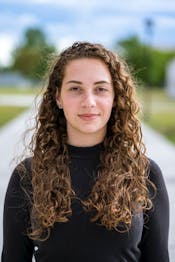
Jacklyn Walters is a senior communication major and The Spectrum's managing editor. She enjoys bringing up politics at the dinner table and seeing dogs on campus.
Tanveen Vohra is a former senior news editor and covered international relations and graduate student protests.


